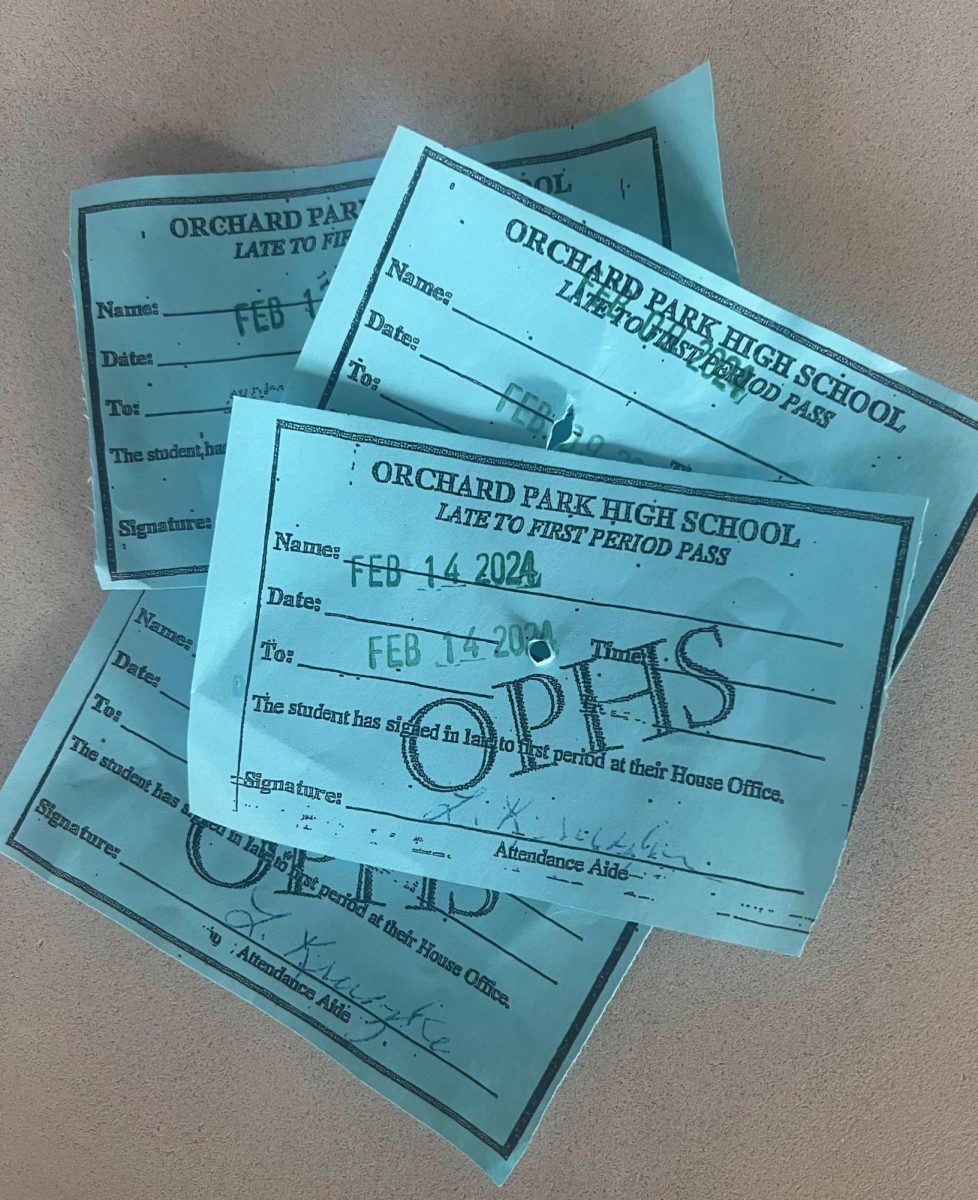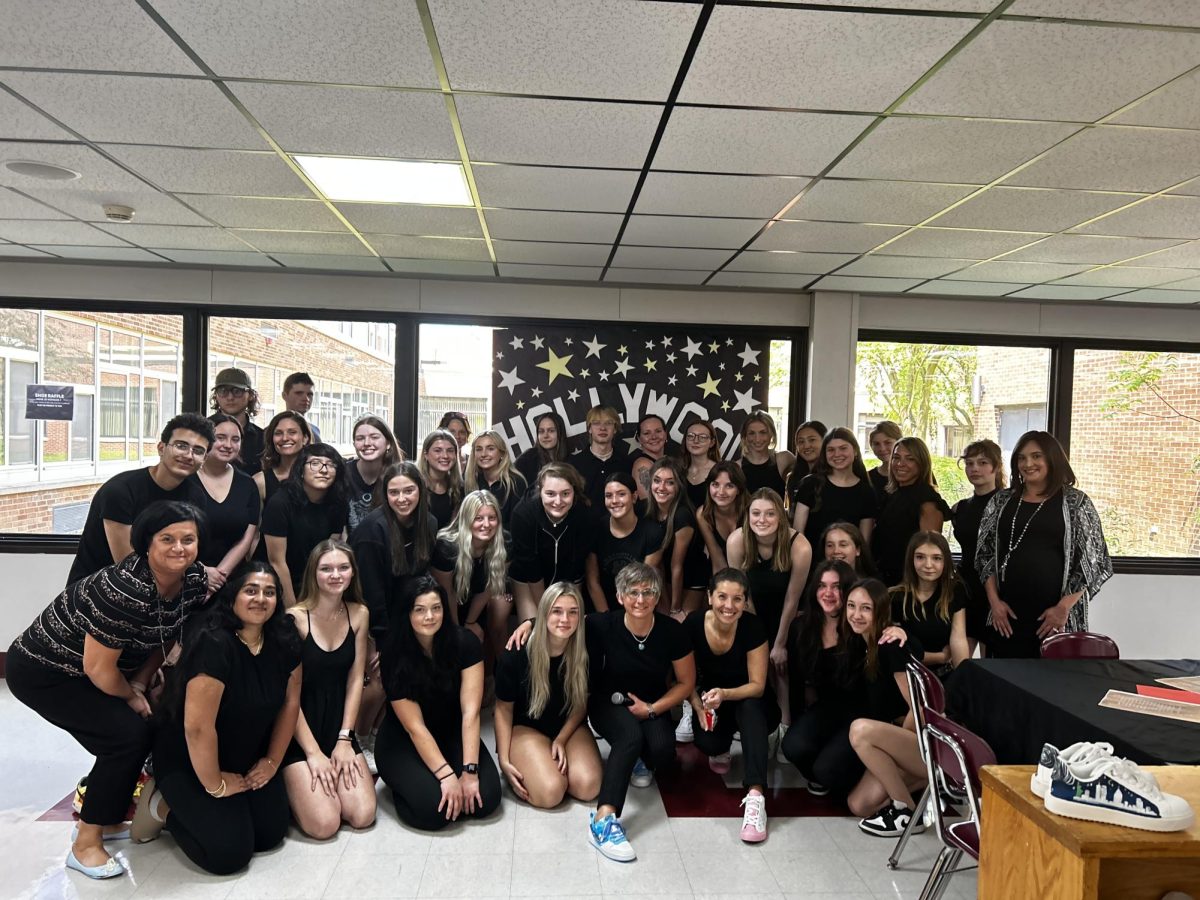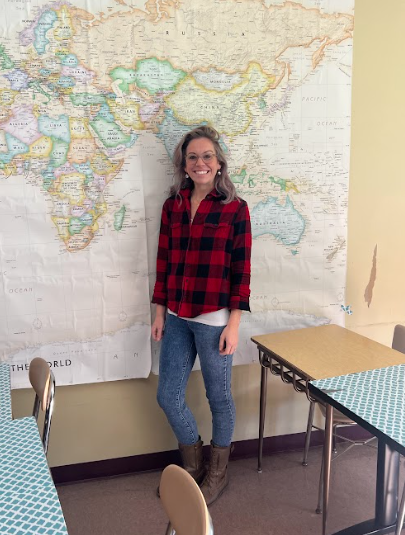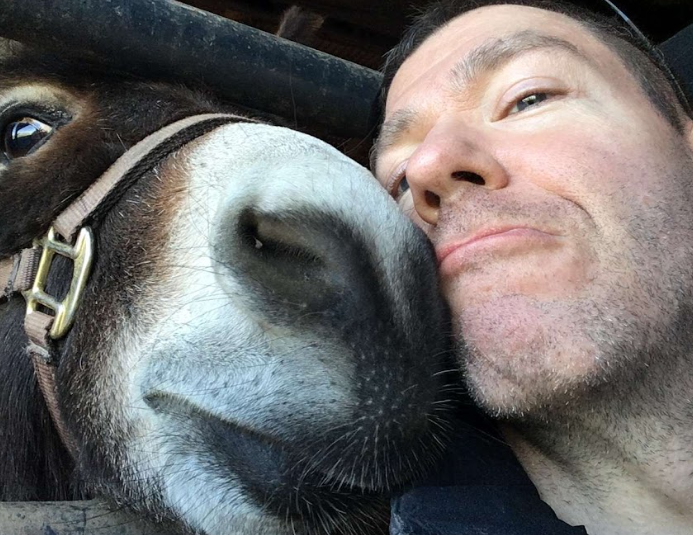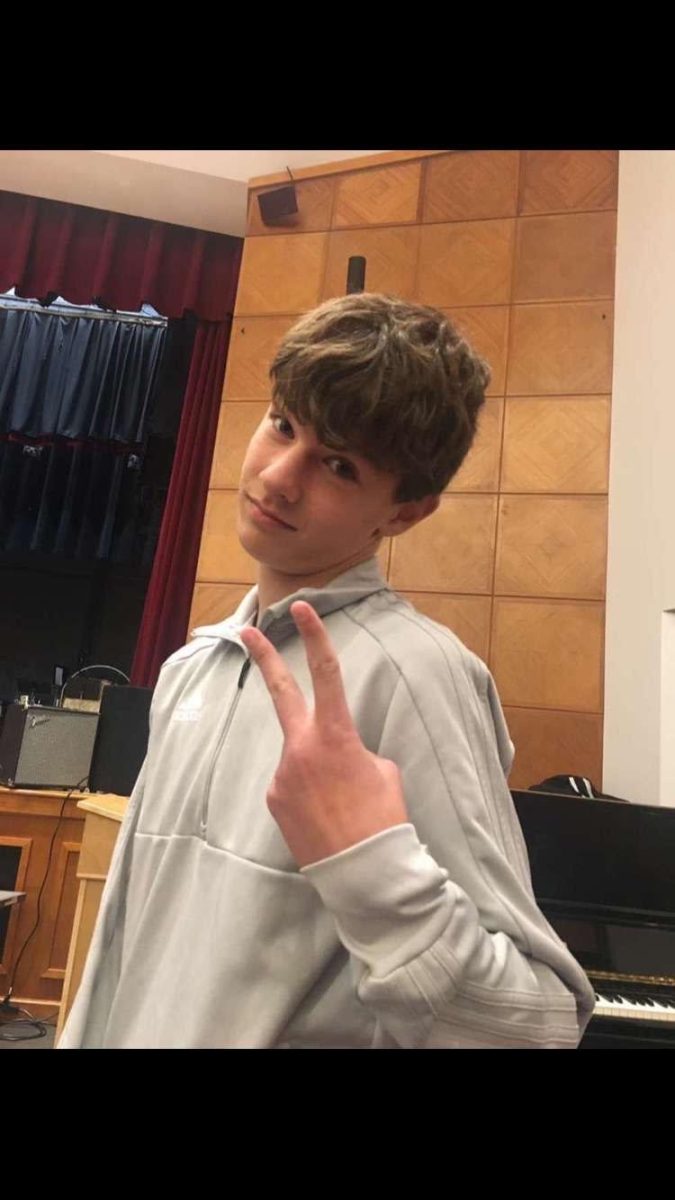
(This interview has been edited for clarity and length.)
Mr. Evan DeWald is a teacher here at OPHS, and he teaches numerous tech related classes, including Principles of Engineering, Small Engine, and Draw Design Production. Mr. DeWald is also the Driver’s Ed teacher here, as well. But, he has yet another job that few people know about: he’s a cattle rancher. I interviewed Mr. DeWad about his second profession and how he balances two full time jobs. He’s had to schedule his day in a way that allows him to do work on both jobs and overcome the many challenges with both. I hoped to learn more about the farming business and how he manages it, while also having a full time teaching job.
What age did you get into the farming business, and how could someone with no experience get into this business?
ED: I started working at farms and around farms at about 4 years old, and then I actually technically, like owned my own farm in 2015. So I think I was 21 when I started, and now I’m 30. Someone with no experience would want to get a job related to farming because to go right into it is really challenging, and that’s what my brother and I struggled with the most. It takes an extremely large amount of time and capital to get involved. You need things like land, which is getting harder and harder to buy because they don’t make any more land, right? And the equipment, the machinery could be high maintenance and could be very expensive, so the initial investment is large, and, therefore, I suggest working for someone that’s doing something similar to what you’d like to do first to learn as much as you can. Then you’re going to have to save up, try to avoid debt by buying used stuff, and try to learn how to fix stuff. Also, I would really say that if you’re going to compete with the commercial farmers of modern day America, you’re never going to compete with them. If you’re going to go up against a large business, it’s never going to work…unless you find a niche.
What are some struggles you face in having a full time teaching job and also running the farm? Do you think you’ll always do both?
ED: A lot of the things that are predictable are things that I could plan for, such as knowing that the calves will always need water. So designing a geothermal automatic watering system was a no-brainer because then I wouldn’t have to worry as much about water, and it would just kind of take care of itself. Feeding hay during the winter months is something that, again, with the proper feed system, you can feed every few days. One thing that’s tricky is when you have the responsibility of being in charge of something living. Because every once in awhile, if there’s a health issue or something where a cattle needs to be tended, you can predict that its going to happen when you’re going to be at work, and that’s where you got to rely on friends, family, or veterinarians. You know when somebody says they make really big life plans, some people will laugh about that because you can make all the plans you want… what really happens, we’ll see. But in a perfect world, I would like to continue to develop and refine the business, both the operations, the sales, the marketing, all aspects of the business over the course of my teaching career. And in a perfect world, when I retire, I would like to then have the time to go full time and really see how far I can take the business in retirement.
What’s a typical day working on the farm like?
ED: So some days there’s literally nothing, so you come home from work, you drive past the pasture, kind of look out there, count all the head, take a quick look at them…looks like they’re eating, looks like they have water, everybody looks healthy and happy… And other days, you get home from work, and there’s a calf standing there next to its mother that wasn’t there when you left for work. That’s a really fun day. Other days, you know, you might work from before sun up till after sundown to get 40-50 acres of hay that needs to be done, and the weather window is just right where you can work really hard… So it varies all over the place.
What’s your favorite activity to do on the farm?
ED: That’s a tough one. I really enjoy all of it. Probably two of my favorites would be producing high moisture hay because you get to smell the hay, and when I’m out cutting the hay, it’s kind of a little bit of a mental break; although, it’s still hard work. You can put the bluetooth radio on in the tractor and just kind of enjoy harvesting the crop that you put your time and energy into, and then also it’s really fun because I don’t have a horse or rope to go out, and I literally have to be like Jordan Poirier or like Micah Hyde and try to tackle a calf in open pasture. It’s like a challenge, and it’s like hunting or something. You really got to get into it, and so it’s a lot of fun. The bigger ones we can run through a squeeze shoot and that’s how we handle them, but we don’t have a great system in place yet.
What’s your favorite machine to operate and why?
ED: I don’t know. It could be fun to run the discbine because you can go sometimes as fast as 12-15 miles an hour, while you’re cutting down 10 foot wide sections of hay, and you see the crop laying down after you go by, and just the rate at which you can do it makes it pretty fun.
How many people work on the farm besides yourself?
ED: So it’s really a family affair. The main people involved would be myself, my brother, and my father, and other people do what you want to call peripheral tasks. So my mother does some of the book work and some of the financial things because she works in the accounting business as her full time job; and my fiance and sister in law also show up and work when they’re needed, and they enjoy doing farm work. So really it’s anyone involved in the family, even sometimes friends and extended family when they want to help.
Do you all have specialized jobs, or do you all collaborate and work together on everything?
ED: There are some things that we kind of specialize in, not even by choice; we’d rather rather have everyone know how to do everything, so that its like the Buffalo Bills. If somebody’s sick or somebody has something important going on, the next man up can do the task; so we all pretty much know how to do everything, but it just kind of happens that there are tasks that some of us are better at than others.
What are some common troubles you face with your farming business?
ED: I wish I had more time because I believe we are doing a lot of things really well in producing grass fed beef, but soil management and trying other ideas, like fine tuning rotational grazing and fine tuning our soil health is something that if I had unlimited time I could just spend all the time in the world getting better at. So continuing to go forward, I’d like to get better at soil management.
What products do you sell, and do you sell them directly to consumers or to retailers?
ED: From a legal standpoint, I’m actually selling live animals directly to people, so I’m involved in every process through breeding, raising the calves, producing all the feed and the hay, managing the pastures, and every aspect right down to sales and marketing directly to the end consumer. The only thing I’m not involved in is the butchering and packaging portion because it’s a very specialized field, which requires a lot of equipment and certifications and things I’m not interested in getting involved with.
Why did you choose to raise the livestock that you do?
ED: Black Angus is well known for its flavor and nutrition and being a high quality species of beef, and I had the mindset that if we are going to try and do something, let’s be the best at it. And I’m not saying we are the best at it right now, but that’s a goal, and having the right genetics and the right species is a part of that. Also, they’re a little bit poor-tempered and can get angry, and I kinda like that because having wild cattle grazing like that are good at protecting themselves from coyotes and fisher cats and any other predators that could come at them or their calves. And it’s also just cool working with them to know that they don’t really like you, and you’re managing, for lack of better word, a wild animal.
What are some important life lessons you’ve learned from working on the farm?
ED: One reason I’m in this business is because it teaches you all the things that really matter in life; it teaches you how you can work extremely hard at something, but at the end of the day, it’s not up to you whether you succeed. It’s up to greater powers at play; it teaches you the cycle of life from having calves all the way up to the trailer pulling up to take cattle off the farm. Also, I like seeing the new crops starting to grow in the spring and harvesting the crop, and in the winter I like opening up a bale of hay that was made in the summer, and its smells like a fresh breath of summer air…and it just teaches you everything: Being outside; being with the land; having to work through the sunny days, the rainy days, the stormy days, the beautiful days where you’re like “Oh, my God, I can’t believe I get to do this.” Like in the movies where the sun’s setting and you’re out discbining hay, and the really nasty, muddy, stormy days where nothing’s going right, and it seems like everythings against you, but just knowing there’s another good day coming down the line…
Balancing two full time, demanding jobs would be a major struggle for most people, but Mr. DeWald pulls it off. Local farmers are essential to this country, and they help to provide nutritious and healthy food directly to local consumers, and many like Mr. Dewald don’t use harsh pesticides or chemicals and prefer to make their products as healthy as possible. It’s imperative that we support local farmers such as Mr. DeWald because their sole mission is to provide the healthiest food possible to their local community.
